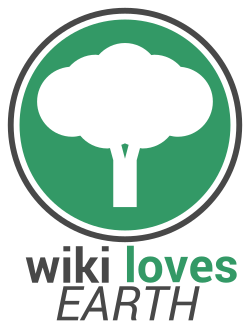Wiki Loves Earth

|
| Spain |
Wiki Loves Earth 2026 is an international photo contest about protected natural heritage sites, which is open to everybody and is organised by the local chapters of Wikimedia and volunteer groups from different countries.
Natural Heritage is an important part of the knowledge gathered and spread by Wikipedia. Everyone can contribute, both with images and articles. An image is worth a thousand words, in all languages.
Everyone is invited to upload images of Special Areas of Conservation (ZEC, in Spanish Zonas Especiales de Conservación) included in the Natura 2000 network under a free license. The idea of this project is to get a global and unique vision of the natural heritage of each country.
Joining Wiki Loves Earth 2026 contest you will contribute to improve the contents of Wikipedia and the rest of the Wikimedia projects.
Wiki Loves Earth is organized in Spain by Wikimedia España, a non-profit association which spreads and promotes free knowledge and in particular Wikipedia and the Wikimedia projects in the Spanish territory; if you want to collaborate in the organization of the contest or other activities, you can join us or make a donation.
Rules to participate
|
The basic rules for this contest are as follows:
There's no limit of the number of images that you can upload. What are you waiting for to go out and take photos? (read the complete terms of participation). If you still have questions in this video (Spanish) you will find a step by step explanation about how to participate. |
History of the contest
The Wiki Loves Earth contest was first organised in 2013 in Ukraine, where 346 participants uploaded more than 9,000 images. In the 2014 edition, the competition expanded to 14 countries around the world, attracting more than 62,000 photographs, and participating some regions of Spain, namely Catalonia, the Balearic Islands and the Valencian Community. In the 2015 edition, for the first time, the competition covered the entire Spanish territory. The 2020 edition facilitated the organisation of the competition on different dates than usual, as a measure against the coronavirus pandemic. Since the first edition, more than 900,000 images have been collected.
Selection process and awards
The contest is composed of two different phases, the first one takes place within Spain with a national jury and with our prizes; in the second phase, of international scope, the best photographs of each national contest (top 10 in the case of Spain) will participate with an international jury that will select the best pictures of protected natural sites in 2026 worldwide and will also grant important prizes. The international winning photos will represent two categories — landscapes (including individual trees, if it's a nature monument) and macro/close-up (animals, plants, fungi):
Organiser Sponsor
Participate now!
 |
Register | You will need a Wikimedia Commons account with a valid email address. |
 |
Search | Check the european map (ZECs are marked blue) or the listings with their corresponding maps (links in the right top box) to locate nearby protected natural sites and write down their ID number. |
 |
Take a pic | Only the pictures taken by you will be admitted. |
 |
Share | Upload the pictures during the month of July. |
If you have any doubts, you may contact us at info@wikimedia.es.
By participating in this contest, you accept its terms and conditions.







